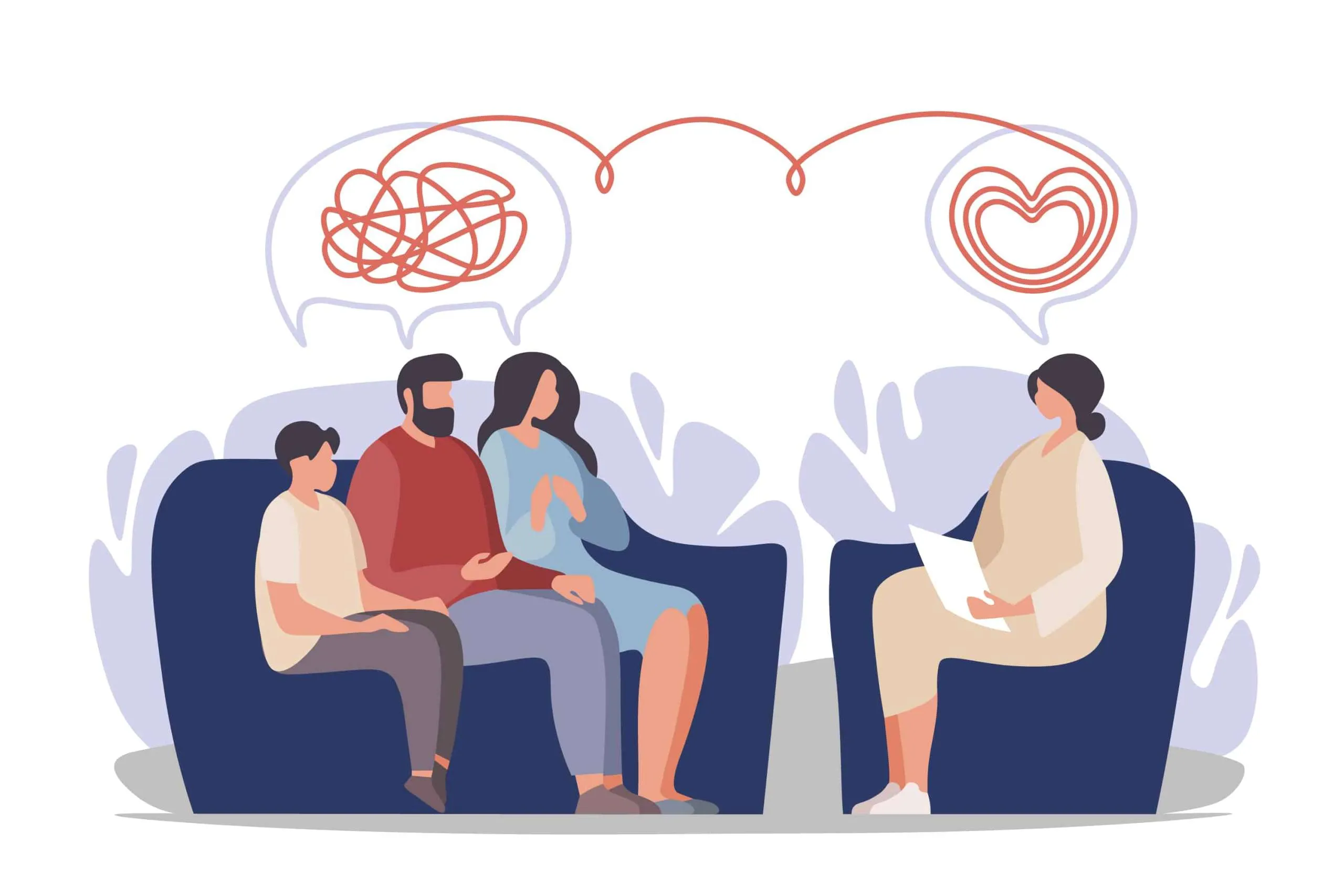
Navigating Family Conflict With Professional Help
Families go through seasons—some filled with joy, others marked by tension or misunderstanding. Whether it’s parent-child conflict, sibling rivalry, blended family adjustments, or communication breakdowns, knowing what kind of therapy is best for family issues can make all the difference.
Types of Therapy Commonly Used for Family Issues
1. Structural Family Therapy
Best for: Families with unclear boundaries, power struggles, or role confusion.
This approach focuses on realigning family hierarchies and creating a healthier structure for interactions.
Struggling to Communicate at Home? We Can Help.
Family conflict doesn’t have to be a constant in your life. Our licensed therapists at The Workshop Counseling in Hurst, TX specialize in helping families rebuild trust, improve communication, and create healthier relationships.
1. Structural Family Therapy
Best for: Families with unclear boundaries, power struggles, or role confusion.
This approach focuses on realigning family hierarchies and creating a healthier structure for interactions.
2. Strategic Family Therapy
Best for: Families dealing with behavioral problems or repetitive conflict cycles.
Therapists use active techniques to shift how family members respond to one another.
3. Bowenian Therapy
Best for: Families with long-standing emotional tension or multigenerational issues.
It emphasizes individual responsibility while exploring emotional patterns within the family.
4. Systemic Family Therapy
Best for: Families needing help seeing issues from multiple perspectives.
Focuses on communication patterns and underlying beliefs driving family behavior.
How Family Therapy Helps
Key Benefits of Family Counseling
Improved communication between family members
Healthy boundary setting
Resolution of ongoing conflicts
Greater empathy and emotional support
Support during major transitions (divorce, illness, loss, relocation)
What to Expect in a Family Therapy Session
Sessions may include all family members or just a few, depending on the issue. Therapists act as neutral facilitators, helping each person express their thoughts and listen to others without judgment or escalation.
Typical First Steps
Assessment of family dynamics
Goal-setting for therapy outcomes
Practice of communication and conflict-resolution strategies
Frequently Asked Questions
How many sessions are needed for marriage counseling?
The number of sessions varies, but most couples see progress within 8-12 sessions.
Is couples counseling effective?
Yes, when both partners are committed to the process, counseling can significantly improve relationships.
Can marriage counseling prevent divorce?
While there are no guarantees, counseling can help couples address underlying issues and rebuild their partnership.
Can couples counseling help after infidelity?
Absolutely. Counseling provides structured guidance to rebuild trust and navigate the emotional pain of infidelity.
Is marriage counseling only for couples in crisis?
Not at all! Many couples use counseling proactively to strengthen their relationship and prevent future conflicts.
Does marriage counseling really help?
Yes. Studies show that counseling improves relationship satisfaction, especially when both partners are committed to the process.
How long does it take for marriage counseling to work?
Most couples notice progress after 6–12 sessions, though long-term issues may take more time.
